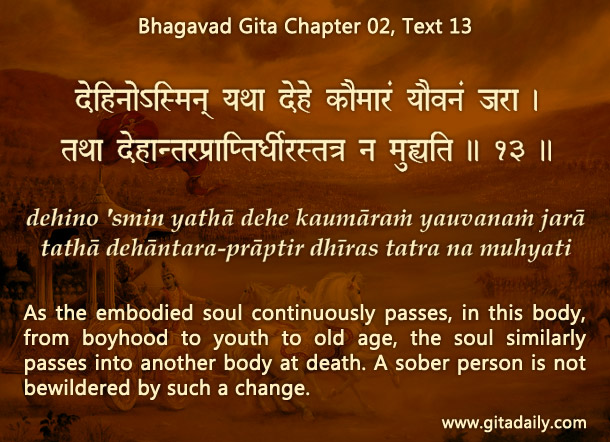We live in a culture where the new is incessantly glamorized – new gadgets, new fashions, new data, new news.
But we don’t always need new information – what we need is timely access to the known. If students have prepared for an exam, they don’t need any new information at the time of the exam – they just need to recollect what they already know.
At the Bhagavad-gita’s start, Arjuna faces an emotional breakdown at the prospect of fighting a fratricidal war. Krishna helps him recover by reminding him of everyone’s indestructible spiritual identity (02.13). By fighting for the cause of dharma, his eternal soul will get elevated, even liberated. By punishing those who have chosen to side with adharma, he won’t be killing them; he will be freeing them from their present bodies and circumstances. And their souls, being duly penalized and purged of the bad karma, will be appropriately moved forward in a new bodily dress to a destination suitable for their spiritual evolution.
The Gita’s knowledge is not new. The Mahabharata, of which the Gita is a part, contains many references to the soul. Arjuna lived in a culture where knowledge of the soul was familiar, even foundational. What helped Arjuna was not the newness of the knowledge, but its timeliness.
Similarly, when we study scripture, we needn’t let the search for the new distract us from the potency of scripture to help us with timely insights when we need them. By studying scripture regularly, not for gaining the titillation of finding something new, but in a mood of service, we will find ourselves enriched and empowered by how we find within it pertinent insights when we need them.
To know more about this verse, please click on the image
Explanation of article:
Podcast:


Wonderful! And timely!😎🙏🏽